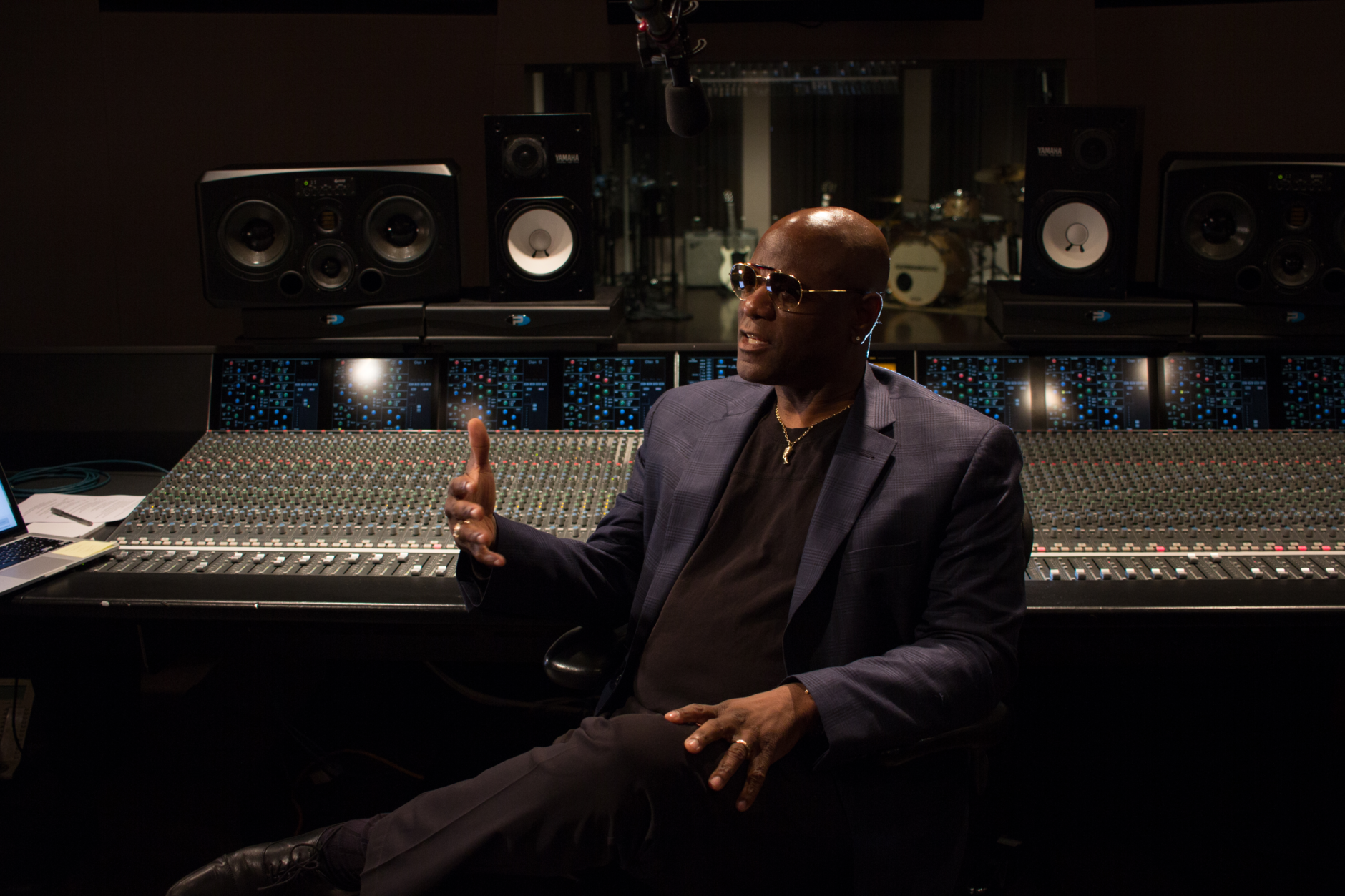Sennheiser’s Pro Talk Series on YouTube features interviews with the industry’s most respected sound engineers, including Grammy Award-winning producer and engineer, Prince Charles Alexander.
Once a funk legend in his own right, Alexander says it was the stylings of his idol, Isaac Hayes, which inspired his passion for music at an early age. And, he credits Maurice Star, for whom he played keyboard, with having helped him launch his career – and his unique stage name.
Though he got his start on stage, Alexander’s foray into the world of audio engineering began like any other – working toward a music degree, interning in a studio for next to no pay, and learning the skills inside and out. It’s this bottom-to-top training that has helped him become the talented music producer and audio engineer that he is today.
“The role of the engineer is transparency,” he says. “What makes me unique is that I’m looking for the most transparent engineering process possible. And, I’m relying on my ability as a music producer, more so than as an engineer, to be able to extract the song from what’s in front of me. You’ve got to take the time. You have to understand how audio comes together. You don’t necessarily have to go to school to study it, you can figure it out on your own, but you’ve got to put in the 10,000 hours to figure it out.”
Unlike when Alexander first started engineering for the likes of Puff Daddy, Notorious B.I.G. and Mary J. Blige, there are less skillful approaches being taken with production today. “The success of non-professional techniques – people in their bedrooms, doing whatever they do – it’s got nothing to do with how we actually make records,” Alexander explains. “But then it comes out and it’s a successful musical experience with their audience. As a producer, I’m listening to that thing going, ‘why did it connect?’ and ‘is there something I need to learn from that in order to connect?’” For Alexander, it’s not just the style of music that has changed dramatically.
“The other thing that I’ve noticed is that plug-ins are delivering a professional concept to the non-professional,” he says. “The non-professional doesn’t even know how it works, but they turn it on and say ‘oh, it sounds great.’ I actually know why it’s happening, the average person probably doesn’t know why it’s happening, but they know it sounds really, really cool.”
When it comes to technique and sound, one of Alexander’s main approaches is to focus on his collection of microphones. “I don’t even understand how you mic drums without the Sennheiser 421,” says Alexander, who uses them on Tom Toms. “It doesn’t even make sense to me. The 421 is solid and the dynamic response handles the transience of the Tom Toms really well.” But, he recognizes that, much like the style of music itself, “the surfaces that we work with are evolving and changing. The immersive concept is an interesting thing, if someone can figure it out. Someone’s got to come up with something really innovative and ground-breaking.
If you want to be immersed in audio, you’ve got to have multiple points of contact. I want to have multiple points of contact as I’m walking to my kitchen. The person who can figure that out is going to be really, really rich.”
As a professor of production and engineering at Berklee College of Music, Alexander regularly encounters the industry’s next great talent, so he might just have the person who will develop that concept working in his studio right now. In the meantime, he’ll keep working to teach them the best way to be a producer.
“I tell them to listen to good music (or music that interests you), then try to create that music, then try to mix that music, then try to put that music into the marketplace; that’s the only way you’ll know if what you’re doing has a trajectory that works for your life or not,” he says. “The creativity of my students and the shape of the sound has been morphing and doing a lot of strange things. And, I can see in 15 years that I’ll turn on the radio and I won’t understand anything. And that’ll be a good thing, because each generation is supposed to do that.”








